
Photo
A hunting party in at Aiken, around 1910. The dry, pleasant climate attracted winter visitors to Aiken as early as the 1850s, but its real expansion as a winter resort took place after the Civil War...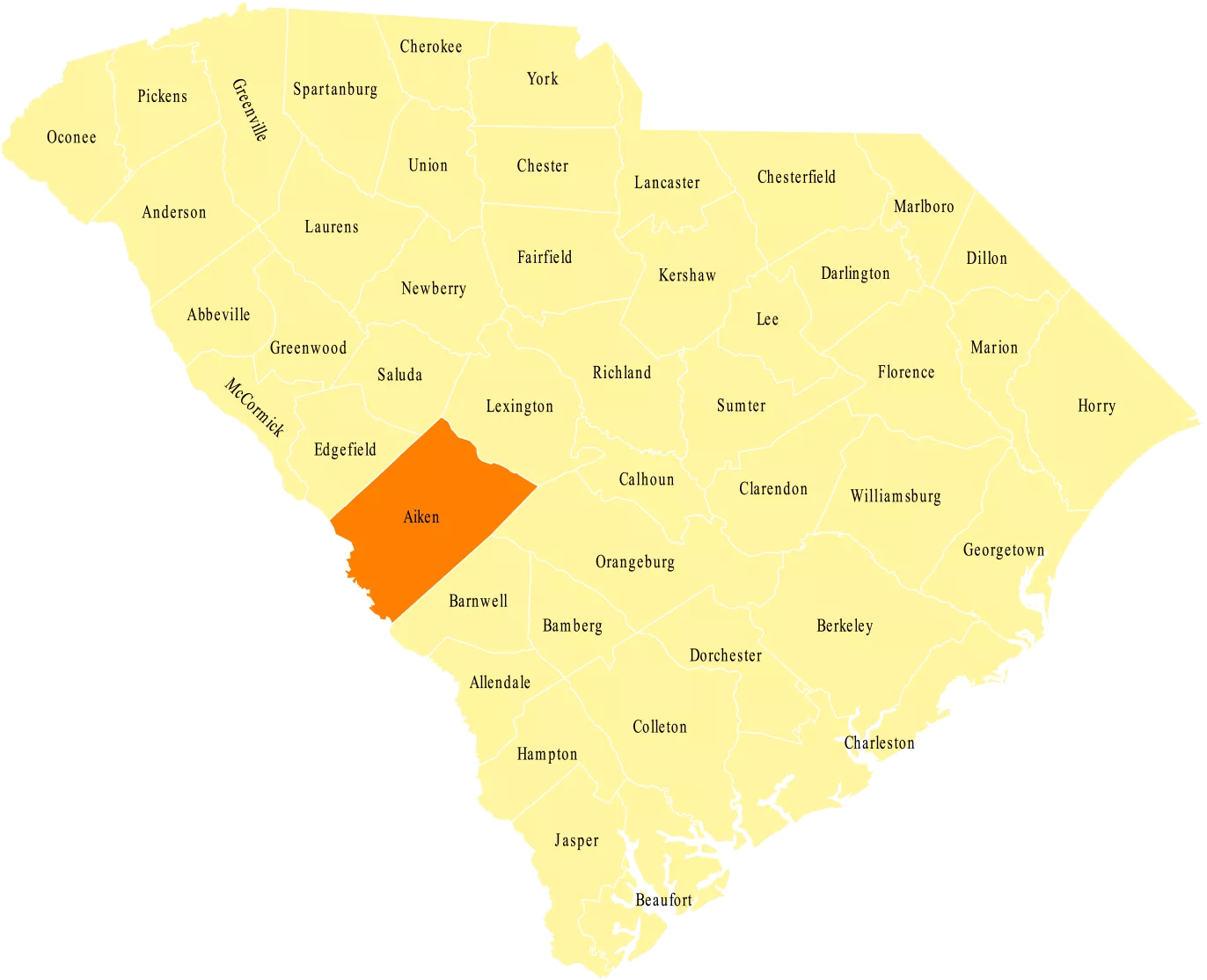
Situated along the Savannah River, Aiken County shares its name with its county seat. An equestrian-enthusiast’s paradise, Aiken County is home to a polo club and a prominent horse racing scene with its own Triple Crown. The area is also known for agriculture, especially the cultivation of soybeans, hay, peaches, and corn. As of 2010, about 160,000 people resided in Aiken County.
In 1871, lands previously belonging to Edgefield, Lexington, Barnwell, and Orangeburg counties were merged to create Aiken County. The area began to serve as a vacation destination frequented by visitors from the Northern United States in the late 19th century. William Aiken, the county and county seat’s namesake, was the president of the South Carolina Railroad.
Aiken County: About Aiken County. Accessed June 01, 2016.

Photo
A hunting party in at Aiken, around 1910. The dry, pleasant climate attracted winter visitors to Aiken as early as the 1850s, but its real expansion as a winter resort took place after the Civil War...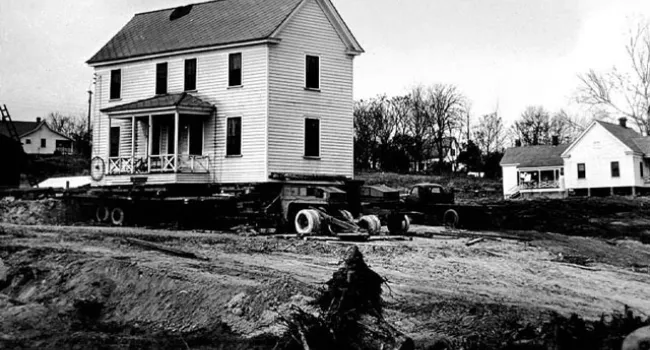
Photo
"Close-up view of house loaded on two trailers ready to be moved. Boy Scout Cabin Site is immediately at right-hand side of picture." This photograph was taken on January 29, 1949, as construction...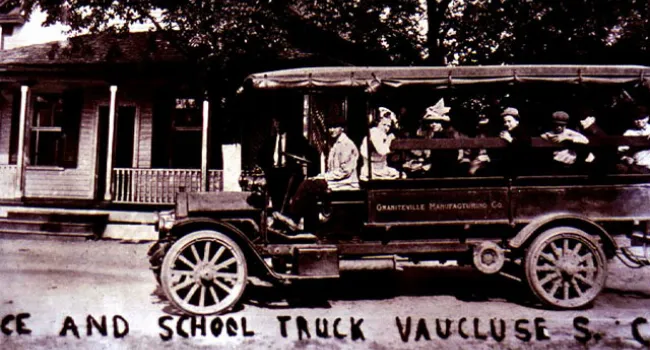
Photo
Office and school truck at Vaucluse, South Carolina, in 1910. Mr. J. Wesley Rearden is shown standing, with derby hat, on the far side at the front end of the truck. Courtesy of the South Caroliniana...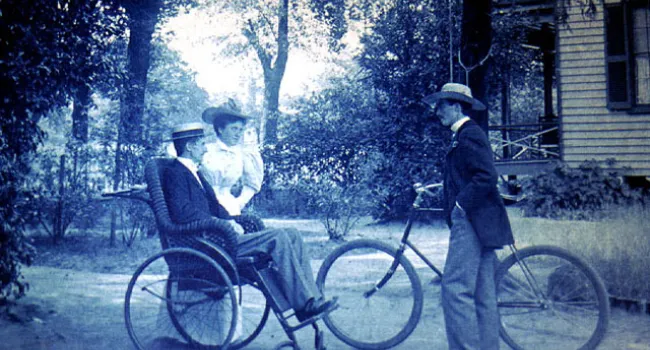
Photo
"Mr. Fisher, Julie, and Hosie," guests at Sedgewick House, one of a number of boarding houses that were part of the Aiken Winter Colony, pose with their wheelchair and bicycle in 1896. Courtesy of the...
Photo
Ellenton, one of several towns that was moved in order to make room for the Savannah River Plant (see South Carolina Enters The Nuclear Age). Here Herbert Harden, Railway Express Agent, moves bundles...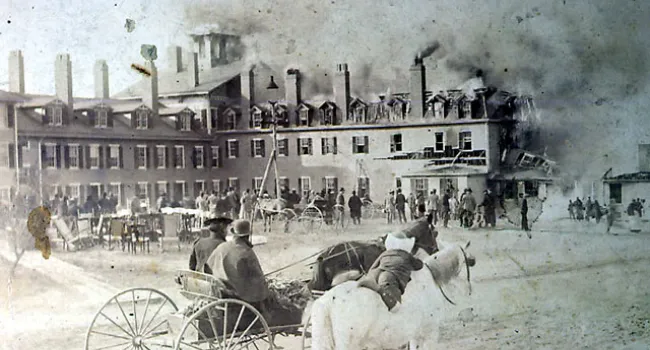
Photo
The Highland Park Hotel burning. C.D. Hardt, photographer, 1898. Courtesy of the Aiken County Historical Museum.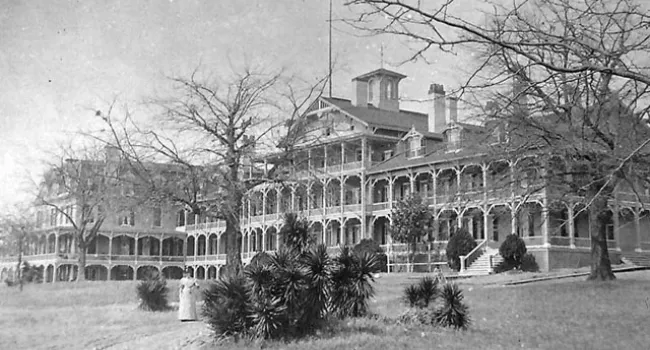
Photo
The Highland Park Hotel was an important part of the "Winter Colony" of Aiken, photographed here in February of 1894. Built in 1866, the hotel provided luxury accommodations for wealthy visitors from...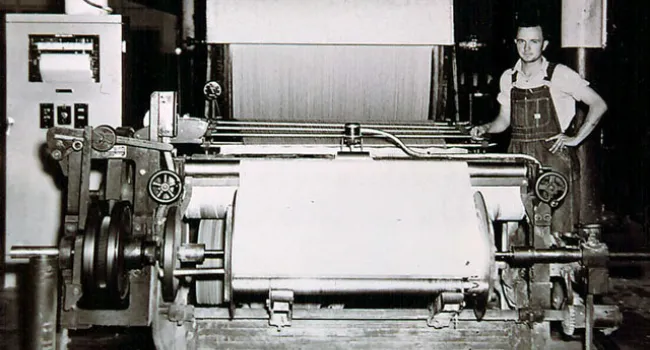
Photo
A slasher works in the Hickman Mill, one of the Graniteville Mills in Aiken County, in this December 1946, photograph by J.F. Sofge. Courtesy of the South Caroliniana Library.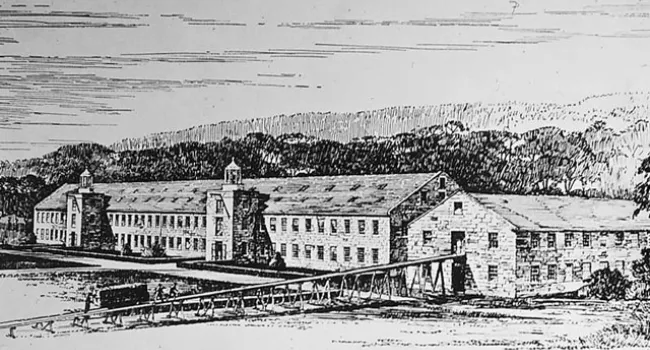
Photo
The Graniteville Mill, built by William Gregg (see William Gregg) in 1846, was one of the first cotton textile mills in the South, and laid the basis for the expansion of South Carolina's textile...
Photo
A cotton field during harvesting in Aiken. Courtesy of the Aiken County Historical Museum.